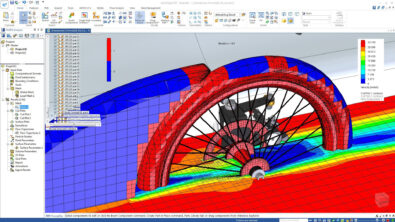5 best practices for computational fluid dynamics (CFD) simulation


When developing a new product, how do you increase productivity while simultaneously increasing your return on investment (ROI)? It’s done with ease when you move simulation and analysis into the early design stages. The earlier you’re able to perform simulation as part of a design process, the lower the cost of change becomes.
In our latest eBook, we explore several practices for CFD analysis in the design process, including front-loading simulation to guide design decisions, improving collaboration between simulation and design, and reducing costs to increase ROI.
Enhancing the design stage
CFD simulation is an integral step during the design stage – it’s no longer a luxury; it’s a must.
Many of the most successful companies in their markets assess performance early in the design process and promote collaboration between analysis experts and design engineers. In doing so, these companies allow their analysis experts to be able to identify trends quickly and their engineers to be able to innovate more efficiently – all while reducing the costs of product development.
By downloading this eBook, you’ll learn how to implement the following best practices:
- Encourage performance assessment as early as possible
- Reduce the number of prototypes and optimize cost
- Select the solution that fits into your existing processes
- Front-load CFD to increase engineering productivity
- Use embedded CFD in CAD environments
Download the eBook to learn more →
Simulation in Solid Edge
Simcenter FLOEFD for Solid Edge supports flow simulation with an embedded computational fluid dynamics (CFD) simulation tool for easy, fast and accurate fluid flow and heat transfer analysis. Fully embedded in Solid Edge, FLOEFD enables design engineers to front-load CFD, moving simulation early into the design process where it can help examine trends and eliminate less desirable design options. Learn more about this capability and find more resources on the Solid Edge site.


